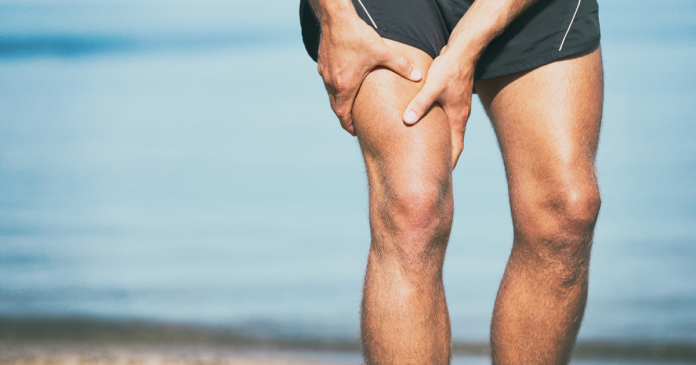You’ve probably experienced a corked muscle, also known as a muscle spasm, and wondered why it happened. Muscle spasms tend to occur when a muscle is overworked or injured. Running long distances or hiking for a long time may cause leg spasms.
Muscle spasms are relatively normal, but sometimes they can be concerning. The following are several causes of muscle spasms and when you should seek immediate medical attention.
1) You exert yourself too much
There is a limit to how much your muscles can handle. Though there are often good remedies for muscle pain relief, sometimes you need something more. An overworked muscle while gardening, cleaning, or holding a child can cause muscle spasms in your back, leg, or neck. These muscles get fatigued and sore, and you’ll experience a spasm. You should rest, ice (to numb the pain) or heat (to relax the muscle), and even a gentle massage may help ease the pain.
2) A slipped disc
Back spasms are uncomfortable and difficult to diagnose. The spasm may be a disc issue if it lasts over three days and is painful or aggravated by coughing or sneezing. These spongy cushions between the vertebrae in your back can bulge and press on nerves. Also, watch out for pain that radiates down your legs or is accompanied by numbness or tingling. In those instances, you want to get to your doctor for further investigation.
3) It may be peripheral artery disease
Also called PAD, peripheral artery disease happens when plaque builds up in your arteries, most often in the legs. Your toes may feel numb, or you may experience pain. However, the cramping pain of a leg spasm begins as soon as the patient begins walking, according to Dr Hayden. When they stop, it goes away. “This is a sign that the muscle is quickly compromising its blood supply,” he explains, adding that it sets off a red flag that it may be PAD.
4) You are exhausted
You know how sometimes you get those crazy annoying eye spasms? It’s like your eyelid is going haywire. This refers more to twitching. Luckily, for the most part, it’s normal. There’s not a good understanding of the cause, but it may be fatigue, too much caffeine, or irritation in or around the eye. If it is persistent or affects your eyesight, see your doctor for further consultation.
5) You’re taking dehydrating meds
Some medications can leave you more prone to muscle spasms, and diuretics (or water pills) are one of them. These medications are designed to force your kidneys to work hard. When your body lets go of extra water, you may also throw off your electrolyte balance. This may deplete your potassium or magnesium, two nutrients necessary for proper muscle function. Consult your doctor about if switching to another med might help or if there are any lifestyle measures you can take. For instance, if you’re taking a medication that prompts you to lose potassium, you may want to eat more potassium-rich foods like bananas.
6) You slept in an awkward position
Stretch your back before you sleep, massage it, and stay active. However, you may call your doctor to express your concerns if you’re worried. However, if the back pain hasn’t subsided in two weeks, you need to make an appointment for a check-up.
7) It’s a nutritional deficiency
Electrolytes (calcium, magnesium, sodium, potassium) play an important role in muscle contraction. When the balance is off, you may be more prone to those twitches, twinges, and weaknesses. Your doctor may want to consider If you’re running low on any of these. A healthy diet is your best bet against falling short, and good-for-you foods often supply a range of electrolytes. For instance, yoghurt and bananas both contain potassium and magnesium.
8) You’re dehydrated
When you’re parched, you’re prone to spasms. When the water level in your body is low, it throws off the electrolyte balance in your body. It often happens to athletes exercising long and hard in hot weather. A sports drink can replace lost electrolytes if you’ve been doing a high-intensity activity for more than 45 to 60 minutes in the heat.


